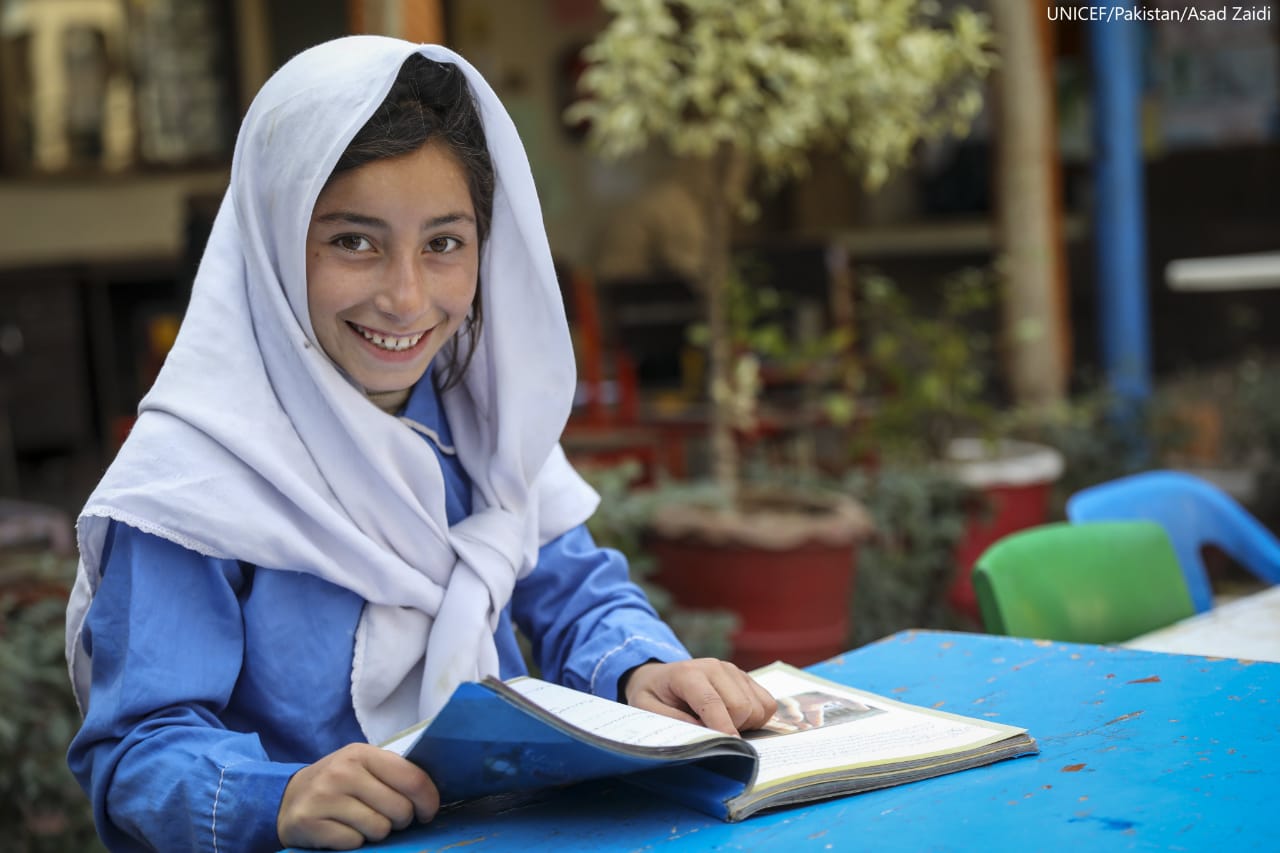“On International Women’s Day, we acknowledge the international community’s hard-fought gains for the world’s women and girls. We celebrate the remarkable achievements of women and girls in our societies. And we redouble our commitment to extend those gains to every girl, everywhere,” said UNICEF Executive Director Catherine Russell, who conducted a three-day visit to Pakistan at the end of last month.
Advertisement:
“But the fight for gender equality is far from over. Indeed, even before COVID-19, gender inequality persisted as the most widespread and significant injustice of our time. But this injustice has been multiplied by the impacts of the pandemic. As we enter a third year of COVID-19 and work toward a post-pandemic era, true recovery must be gender equal.
“COVID-19 is devastating the lives of girls. Ongoing school closures, economic stress, and service disruptions are putting the health, wellbeing, and futures of the most vulnerable girls at risk. Globally, over 11 million girls may never go back to school after the pandemic. An additional 10 million girls are at risk of child marriage over the next decade. And, according to UNFPA, two million additional cases of female genital mutilation may occur.
Advertisement:
“As lockdowns force children to spend more time in their homes, girls are shouldering more of the household labour. Many are forced into close quarters with an abuser, separated from the services and communities that help protect them. Gender-based violence, including sexual violence, is on the rise. “We cannot let a generation of girls bear the cost of this pandemic for the rest of their lives. As we work toward a post-pandemic era, girls must be at the centre of global, national, and local pandemic response and recovery plans.
“That means keeping schools open to allow girls to resume their education and investing in resources to help those who have fallen behind catch up. It means reinvesting in girls’ health and education, including in their sexual and reproductive health and rights, and improving girls’ access to quality menstrual health and hygiene services. It means protecting girls from all forms of violence, including harmful practices such as child marriage and female genital mutilation.
Advertisement:
“Empowered girls power progress. Girls all over the world are standing up for their rights and calling for exactly these kinds of steps. We need to listen. Global stability, peace, and prosperity depend on it. On International Women’s Day, let’s commit to a girl-focused COVID-19 recovery that helps create a more just and equal post-pandemic world for girls, and a brighter, more peaceful and prosperous future for us all,” Russel concluded.
Pakistan has made significant progress in advancing the rights of children. Yet many girls continue to lack equitable opportunities to access their rights to education and protection from violence and abuse, and child marriage. Adolescent girls have few opportunities to express their views and to participate in the decisions that affect their lives.
Advertisement:
Today an estimated one third of school-aged children in Pakistan (over 21 million children) are out of school; more than half (55 per cent) are girls. There is a need for increased investment to improve access to and quality of learning and skills development for girls. The Education system also needs to be more gender-responsive and prioritize girls’ safety, protection, and learning. As the country plans for recovery from COVID-19 pandemic, there is a need to put an equity and inclusion lens. We need to ask not just what children need to re-engage in education, but specifically, what do girls need? How do we bring the learning environment to the most marginalized girl? What options are there for affordable distance learning? What incentivizes their return to the classroom? How do we mobilize communities and parents to help them understand the value of educating their girls?
Child marriage – a marriage or union before the age 18 – has a disproportionate impact on girls. It curtails their education, compromises their health, exposes them to violence and traps them in poverty, undermining their prospects and potential. In Pakistan, an estimated 21 per cent of women-aged 20-24 years [1] are married before they turn 18 years, 4 per cent below the age of 15. About one in five girls, aged 15 to 19 years give birth [2] and adolescent mothers account for 44 of every 1000 live births. In 2014, Sindh became the first province to ban child marriage after its Assembly made marrying a child under 18 years a violation punishable with imprisonment of up to three years. Last week, the Islamabad High Court ruled that any child below the age of 18 is prohibited from marrying in Islamabad Capital Territory.
Advertisement:
UNICEF takes the opportunity of the International Women’s Day to urge legislators in all the other provinces in Pakistan to raise the minimum age of marriage to 18 years and remains committed to supporting national efforts to end child marriage and accelerate results for girls.




